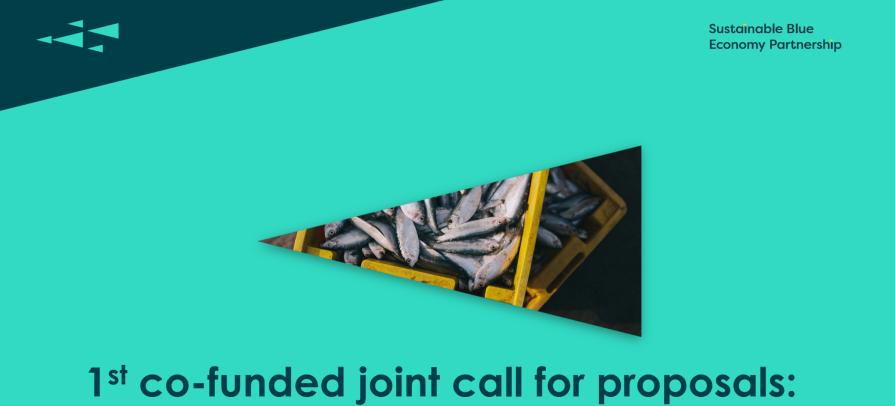1st Joint call in the Sustainable Blue Economy Partnership
We are pleased to announce the Sustainable Blue Economy Partnership's 1st Joint transnational call: "The way forward: a thriving sustainable blue economy for a brighter future"!
The Faroe Islands are one of 23 countries in this partnership. This makes Faroese partners eligible for funding in this call.
The total budget is € 50 million. The Faroe islands have committed € 135,000 for Faroese partners in this first call.
There are some specific national requirements for Faroese partners. We therefore call on Faroese participants in joint applications to get in touch with the Research Council Faroe Islands.
This is a two-stage process with submission of pre-proposals in April. A first evaluation of the pre-proposals will be organised and the deadline to submit full proposals is foreseen for September 2023. Project start is expected in 2024.
More info: bluepartnership.eu
Five intervention areas
There are 5 intervention areas:
(1) Planning and managing sea-uses at the regional level
(2) Development of offshore marine multi-use infrastructures to support the blue economy
(3) Climate-neutral, environmentally sustainable, and resource-efficient blue food and feed
(4) Green transition of Blue Food production
(5) Digital Twins of the Ocean (DTOs) test use cases at EU sea-basins and the Atlantic Ocean
These five priority areas were selected to maximise participation while reinforcing the European blue economy through innovative solutions and improved resilience of marine ecosystems. The priority areas embrace actionable routes from science to policy to observe, assess and mitigate the impacts of climate change on vital ecological assets such as biodiversity and other ecosystem services on which our economies depend, thus supporting coastal communities.
Projects in this Co-funded call must be impact-driven contributions to the transformation into a blue economy for a more resilient future and towards carbon neutrality targets, following an impact pathway approach.
Projects must be developed at a pan-European level and in the different European sea basins: the Mediterranean, the Black Sea, the Baltic Sea, the North Sea and the Atlantic Ocean and establish close cross-sectorial cooperation in the science, innovation, and economic sectors. Projects are expected to consider several European sea basins or, at least, to consider the impact of the projects on several European sea basins.
